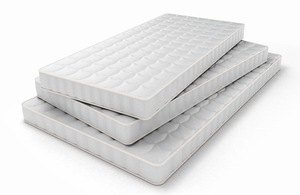CMA investigates Simba Sleep’s online sales practices
CMA launches an investigation into the mattress firm over concerns that it could be making misleading price reduction claims

iStock
The Competition and Markets Authority (CMA) has launched an investigation to examine whether Simba Sleep Limited has misled consumers about price reductions and put unfair pressure on consumers to make quick purchases.
The concerns being investigated focus on:
- Simba Sleep’s use of potentially misleading claims about the extent of price reductions on its mattresses and related products
- The use of urgency claims such as countdown timers that may mislead consumers on the availability of special offers
This investigation follows the publication in March 2023 of an Open Letter from the CMA which called on UK businesses to stop using sales practices that could break the law. The letter provides practical examples of common online sales practices that may mislead consumers or apply undue pressure. Examples include price comparison claims that present consumers with a reduced price alongside a higher, struck-through price, when in fact very few items were sold at the higher price; or the use of countdown-timers that do not accurately reflect when offers will end.
Sarah Cardell, Chief Executive of the CMA, said:
It’s important shoppers can recognise a genuinely good deal, especially as the cost of living hits people’s pockets. More and more of us are buying online so it’s essential companies are being upfront and honest about claims they make about price reductions or when using countdown clocks that may pressure people into making quick decisions.
Discounts are a great way for firms to attract customers, but they must represent a real saving. We’re concerned that firms in the mattress sector and perhaps more widely could be using price reduction claims in a way that could mislead shoppers.
We’ve given Simba Sleep notice that we have launched a consumer investigation into its potentially misleading sales practices. Other companies in the mattress sector, and across the online economy should take the opportunity to look at their own practices to ensure the way they do business stays within the law.
How the case progresses will depend on the evidence gathered. Possible outcomes include the CMA securing undertakings from Simba Sleep that address its concerns, taking court action or closing the case without further action.
The investigation into Simba Sleep Limited is part of the CMA’s ongoing programme of consumer enforcement work focused on ‘Online Choice Architecture’, which is aimed at tackling potentially harmful online selling practices, including pressure selling tactics such as urgent time-limited claims. The CMA’s investigation into Emma Sleep, which also relates to concerns about the possible use of misleading price discount and urgency claims and Wowcher are also part of this programme.
For more information, visit the Simba Sleep inquiry page.
Notes to editors
-
The CMA will now engage with Simba Sleep Limited and gather further evidence to determine whether the CMA considers that the company may have breached consumer protection law. The CMA is at the initial stage of its investigation. Accordingly, it should not be assumed that any business under investigation has broken consumer protection law.
-
In April 2022, the CMA published the discussion paper: ‘Online Choice Architecture: How digital design can harm competition and consumers Discussion Paper’ and the accompanying ‘Evidence Review of Online Choice Architecture and Consumer and Competition Harm’ paper which reported that the way businesses present information and choices to consumers online can influence purchasing decisions.
-
The CMA launched its ‘Online Rip-Off Tip-Off’ campaign in 2022, which revealed that 71% of people shopping online had encountered misleading selling tactics.
-
The main consumer protection legislation relevant to this investigation is the Consumer Protection from Unfair Trading Regulations 2008 (CPRs). The CPRs aim to protect consumers from unfair commercial practices such as the misleading provision or omission of information.
-
As an enforcer under Part 8 of the Enterprise Act 2002, the CMA cannot currently levy administrative fines for breaches of consumer law, although the government committed to giving the CMA and other regulators this power in the Autumn Statement on 17 November 2022 and the Digital Markets, Competition and Consumer Bill currently being considered by Parliament includes provisions to that effect. At present, the CMA can enforce consumer protection laws through the courts and, where appropriate, seek additional measures to improve consumer choice, drive compliance with the law, or secure redress for consumers.
-
The Advertising Standards Authority (ASA) issued a ruling on 21 September 2022 against Simba Sleep, in which it upheld a complaint (Complaint Ref: A22-1151799 Simba Sleep Ltd) in connection with a ‘new customer’ advertisement which was found to use misleading pricing claims and to be in breach of The UK Code of Non-broadcast Advertising and Direct & Promotional Marketing (the ‘CAP Code’).
-
Find out more on the CMA’s consumer campaign on misleading online practices.
-
For media enquiries, contact the CMA press office on 020 3738 6460 or press@cma.gov.uk.